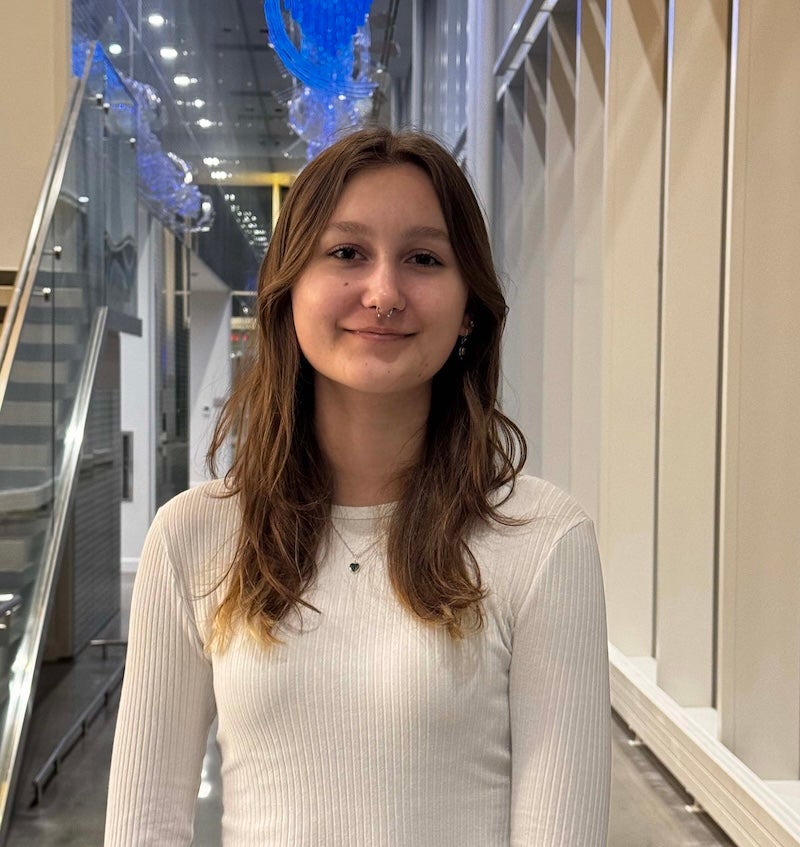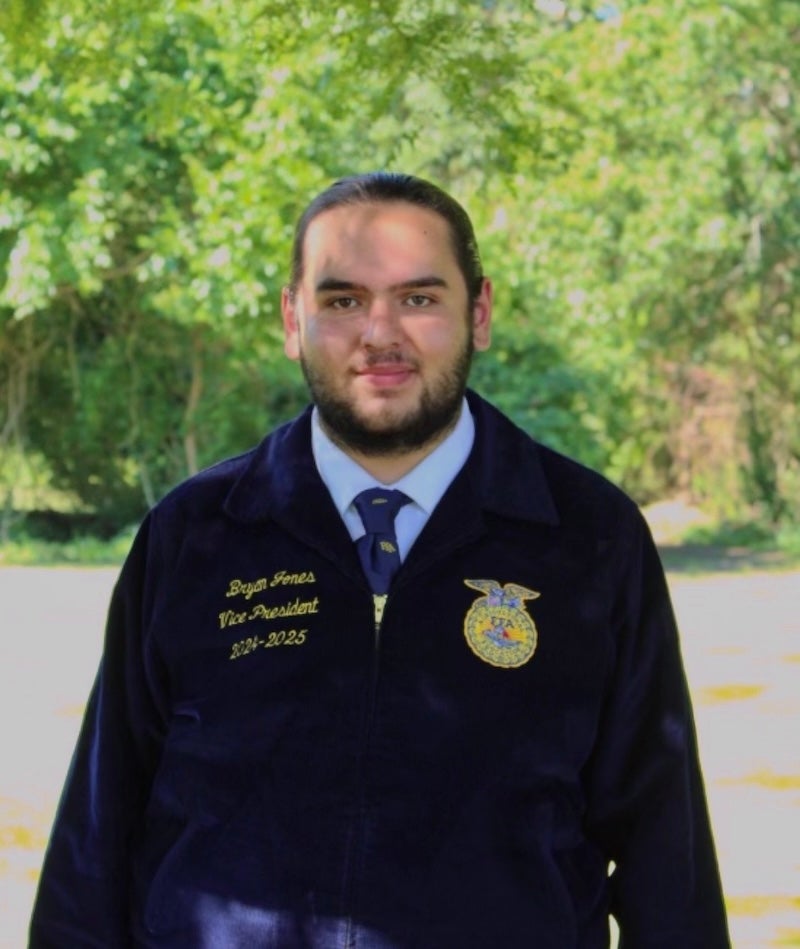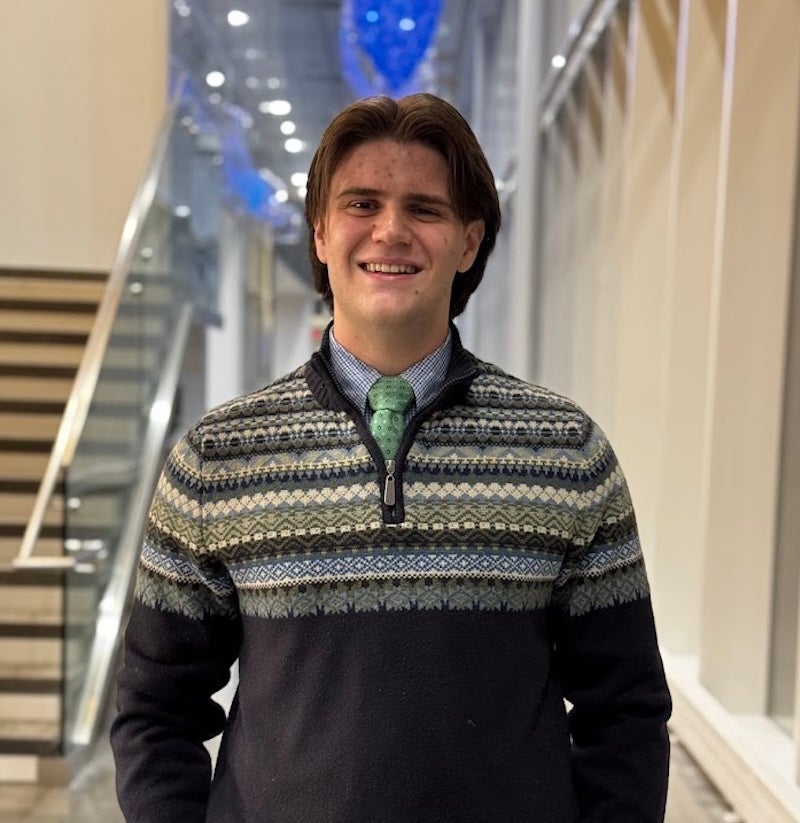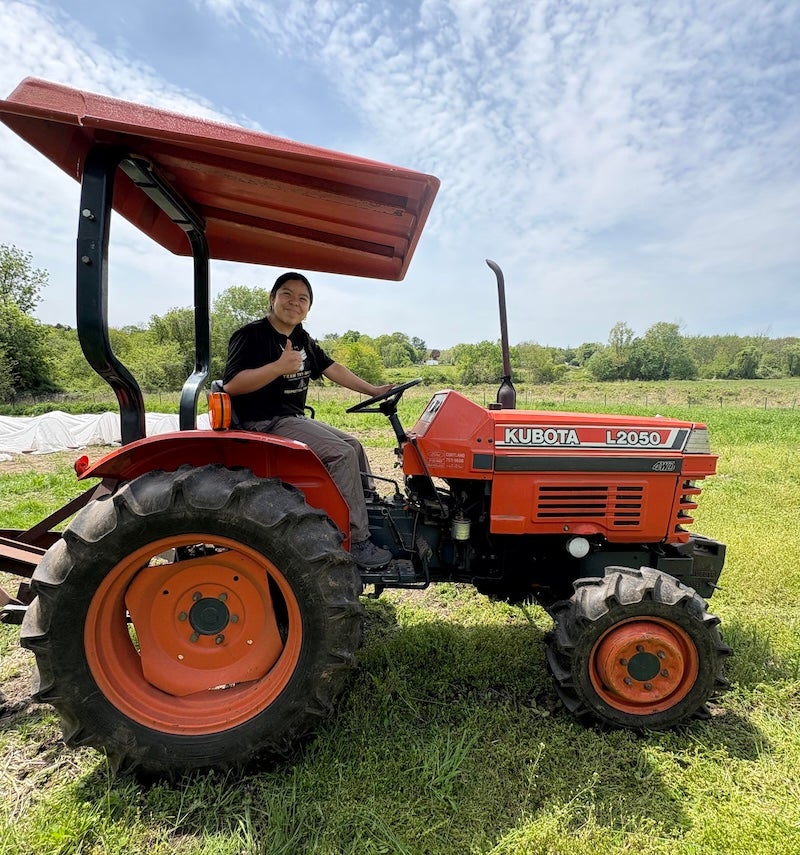From farming to research, students in the Rhode Island Agriculture and Food Systems Fellows Program offered through URI’s Cooperative Extension are spending their summers immersed in the local food system. Since 2022, the program has connected URI undergraduates and CCRI students with food industry mentors to gain hands-on experience and contribute to real-world projects alongside experts.
A year-long, immersive experience, the program includes a 500-hour internship, 30-hour summer industry training, and a variety of networking opportunities. The internship portion of the fellowship places each student with a mentor organization working in areas such as sustainable agriculture, food and nutrition, science communication, and food policy based on their individual career goals.
Funded by a grant from the U.S. Department of Agriculture National Institute of Food and Agriculture, the URI-based program also engages students from CCRI, a federally-designated minority serving institution. “We wanted to create an academic pipeline for students from all backgrounds who may not see a four-year degree in their future,” says Kate Hardesty, administrator of URI Cooperative Extension’s fellowship programs. “After participating in the fellowship as a CCRI student, that becomes more realistic of a goal.”
This summer, 12 students–nine from URI and three from CCRI–are working in industry training placements with the Eastern RI Conservation District’s AgInnovation Farm, Ocean Hour Farm, the RIDEM Division of Agriculture, RI Farm to School Network, Southside Community Land Trust, West Bay Community Action Farm, and, at URI, the Baur Food Systems Lab, Cooperative Extension, Free Farmer’s Market, Gomez-Chiarri Lab, and Vegetable Production Program.
Senior Outreach
At West Bay Community Action Farm, Chelsea Tay, a biological science major at URI from Coventry, Rhode Island, picks vegetables grown for the Warwick, West Warwick, and East Greenwich food pantries; helps with maintenance around the farm, including weeding and tractor work; and plants a variety of crops. “I was drawn to this placement because I loved the idea of spending my summer outdoors while giving back to the community,” she says.
Tay works alongside retired seniors who volunteer on the farm. “As a double major in biological sciences and human development and family sciences with a concentration in healthy aging on a pre-med track, it’s been incredibly rewarding to see healthy aging in action. “The seniors I work with are the backbone of the farm. They are vibrant, dedicated, and we are all united by a shared goal: to serve those in need.”
Tay says she is particularly looking forward to participating in outreach programs this summer–such as Can O’ Peas, which provides monthly food deliveries to homebound individuals. “I’m extremely grateful for this fellowship,” Tay says. “It has deepened my appreciation for where our food comes from and how much work goes into it.”
Addressing Barriers for Organic Growers

Emma Korsu, an environmental science and management major at URI from Brooklyn, Connecticut is working with URI’s Baur Food Systems Lab. Led by Professor Patrick Baur, the lab researches how communities navigate the complex dynamics of ecological sustainability, community development, economic production, and human health in agriculture and food systems.
Korsu is assisting with a project that aims to lower barriers that organic growers face in meeting organic certification and national food safety requirements, focusing on challenges with soil amendments in meeting these requirements.
“We are developing a suite of resources and training for organic stakeholders,” Korsu says. “I am doing literature searches to help gather and sort through the current information out there about mainly food safety, organics, and soil amendments to help create this suite of resources.”
“I came into this fellowship having no previous experience in agriculture, so being able to grow my own knowledge through this project about food systems has been especially encouraging,” she adds. “In working for the Baur Lab for just a few months, I have gained countless experiences in conducting myself professionally, as well as essential research skills that will be a huge aid to me in my future endeavors.”
“Doing to Learn”

For Bryan Jones, a biology major at CCRI from West Greenwich, Rhode Island, the fellowship provides the ideal opportunity to combine his passions for farm work and education. His role is split between hands-on work mowing, mulching, tending animals and educating middle school students from Portsmouth about sustainable agriculture at the Eastern RI Conservation District’s AgInnovation Farm, and working with Portsmouth High School to develop a new Career and Technical Education pathway in the areas of Animal Science and Technology, Plant Science, Aquaculture, and Ag-Mechanics. Jones also hopes to help to establish a chapter of the National FFA Organization (previously known as the Future Farmers of America) at the school—a cause close to him as the 2025-2026 State President of the Rhode Island FFA Association.
“I have seen firsthand how the FFA develops and creates leaders within the agriculture industry and society,” Jones says. “The FFA changed my life, giving me a sense of direction, and I want to provide those same opportunities that I’ve gotten to experience to students in Rhode Island.”
Jones says that he appreciates that the fellowship will help his career goals–including potentially running for national FFA office. “I am learning so much and know I will be well prepared when I represent Rhode Island as just the second National FFA Officer Candidate in 35 years because of this fellowship,” Jones says. “Part of the FFA motto is ‘Doing to Learn’ and right now I am doing so I can continue to learn and grow.”
Connecting Consumers with Local Food

Ben Kopsick, a business administration major at CCRI from Warwick, Rhode Island, works for the Rhode Island Department of Environmental Management’s RI Grown program, an initiative to help consumers purchase and support locally grown, harvested, and produced products by encouraging farmers, stores, and others to use a RI Grown logo where appropriate. “It’s been a truly educational and rewarding experience overall,” Kopsick says. “Visiting farms, producers, and supporters across the state has also been memorable. Seeing the diverse shapes, sizes, and focuses of these farms has been both inspiring and fascinating.”
Kopsick has assisted with public engagement, producer recruitment, and initiative planning, working to increase producer and supporter enrollment through direct outreach. He’ll also help coordinate “RI Grown Week,” a marketing campaign featuring in-person and social media events aimed at supporting local producers, engaging the public, and raising awareness about industry issues while promoting the accessibility of local food.
“This fellowship has allowed me to directly apply the business and management concepts I’ve been learning at CCRI,” Kopsick adds. “As someone who believes in the benefits of hands-on application, this opportunity to reinforce my lessons has been incredibly valuable. Additionally, this fellowship has provided an amazing exploration into Rhode Island’s agricultural industry and food systems. As someone with a lifelong passion for food, I appreciate the chance to explore food-related careers outside of the service industry.”
New Program
URI Cooperative Extension is launching a new Environmental Management Fellows Program. Beginning in 2026, it will be available to URI undergraduate students and CCRI students who are interested in career pathways in environmental protection, resource management, and climate resilience. Similar to the structure of the AFS program, it will create linkages between industry workforce needs and students engaged in related academic programs. In this case, the focuses will include natural resources science, geosciences, landscape architecture, civil and systems engineering, communications and marketing, finance, business administration, and more.
URI Cooperative Extension is currently accepting applications from URI and CCRI students, and welcomes interest from local organizations and businesses to work with future cohorts of the R.I. Agriculture and Food Systems Fellows Program. Learn more at uri.edu/coopext/afsfp or contact Kate Hardesty for information at keventurini@uri.edu; 401-874-4096.

